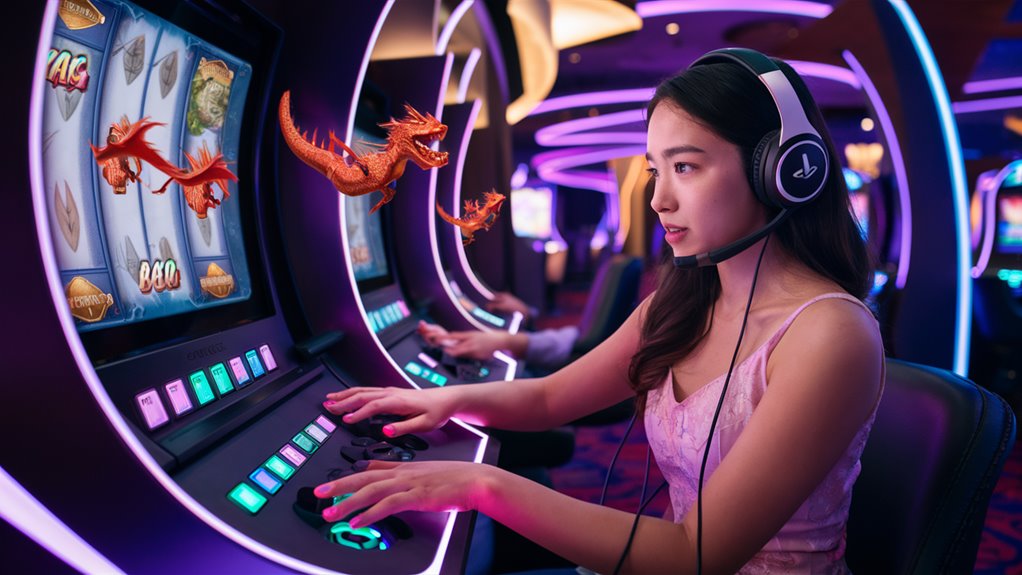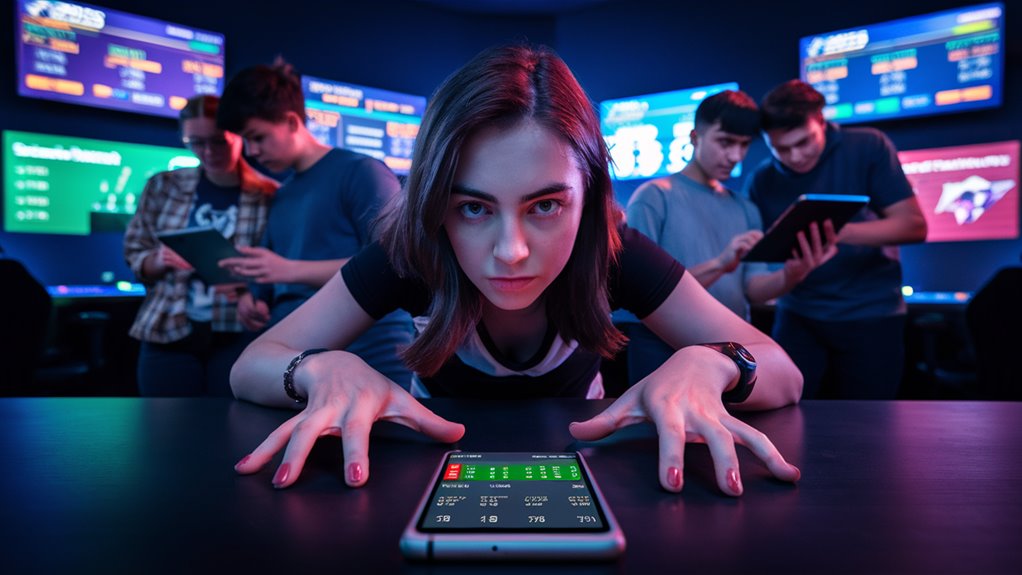Why Are Millennials and Gen Z Drawn to Skill-Based Gambling?
Key Takeaways
- Skill-based gambling combines competitive gaming mechanics with real-money wagering
- Modern gambling platforms incorporate achievement systems and social features
- Young players prefer strategic challenges over traditional chance-based games
- Digital integration and mobile accessibility drive market growth
The Evolution of Modern Gambling
Skill-based gambling platforms merge video game elements with betting mechanics, creating an experience that resonates with younger players who grew up with gaming consoles and smartphones. These platforms feature achievement systems, leaderboards, and multiplayer interactions – elements absent from traditional slot machines and table games.
Strategic Gaming vs. Pure Chance
Millennials and Gen Z gravitate toward gambling experiences that require:
- Strategic decision-making
- Skill development
- Competitive gameplay
- Social interaction
- Progress tracking
Digital Integration and Accessibility
Modern gambling platforms leverage:
- Mobile-first designs
- Cross-platform compatibility
- Social media integration
- Real-time multiplayer features
- Digital payment systems
Social Components
The social aspects driving engagement include:
- Live streaming capabilities
- In-game chat features
- Community tournaments
- Shared achievements
- Team-based competitions
Market Impact
This shift in gambling preferences has led to:
- Declining traditional casino revenues
- Rising investment in digital platforms
- New regulatory considerations
- Innovative hybrid gaming products
- Enhanced focus on responsible gaming features
Understanding Modern Gambling Preferences

What Are Modern Gambling Trends Among Young Adults?
Key Takeaways
- Mobile betting and esports wagering dominate young adult gambling preferences
- Social features and skill-based platforms are driving engagement
- Digital integration and cryptocurrency options attract tech-savvy players
- 사설토토사이트 추천
- Interactive community features enhance the gaming experience
The Rise of Digital Gambling Platforms
Modern gambling trends show young adults consistently choosing mobile-based betting platforms and esports wagering over traditional casino games.
Digital platforms deliver instant accessibility, social connectivity, and interactive gameplay elements that particularly resonate with tech-savvy millennials and Gen Z players.
Skill-Based Gaming Preferences
Younger generations gravitate toward gambling experiences that combine entertainment with earning potential.
These demographics specifically seek out skill-based games where strategic thinking and gaming expertise can influence outcomes, marking a clear shift away from chance-based activities like slots or roulette.
Digital Integration and Payment Innovation
Tech-forward payment systems and platform features drive young adult gambling choices. Mobile sports betting apps and cryptocurrency gambling platforms lead this trend by offering:
- Seamless digital transactions
- Multiple payment options
- Interactive user interfaces
- Peer-to-peer competition features
- Real-time betting capabilities
Social Gaming Elements
The social component plays a crucial role in modern gambling preferences, with platforms offering:
- Community interaction
- Live streaming capabilities
- Real-time chat features
- Multiplayer competitions
- Social media integration
These features create an immersive experience that traditional gambling venues typically can’t replicate, solidifying the appeal of digital platforms among younger demographics.
Video Game Elements in Casinos

How Are Video Games Transforming Modern Casino Experiences?
Key Takeaways
- Casino games now incorporate achievement systems and progression mechanics from video games
- Skill-based elements and interactive features appeal to younger demographics
- Social gaming spaces blend traditional gambling with video game culture
The Evolution of Casino Gaming Mechanics
Modern casinos are revolutionizing gambling engagement by integrating familiar video game elements into their offerings.
Traditional slot machines and table games now feature achievement systems, character progression tracks, and competitive leaderboards – core mechanics that resonate with players accustomed to video game rewards.
Skill-Based Gaming Integration
Today’s casino floors showcase a transformation toward skill-based entertainment. Players encounter:
- Joysticks and button controls replacing classic slot handles
- Virtual reality pods delivering immersive experiences
- Interactive bonus rounds functioning like video game levels
- Gameplay outcomes influenced by player reflexes and decisions
Social Gaming Spaces and Tournaments
The casino industry’s adoption of esports-style elements demonstrates their understanding of younger audiences’ preferences. Modern venues now include:
- Console gaming areas
- Streaming stations
- Interactive displays
- Multiplayer competitions
- Gaming lounge atmospheres
These features create an environment that seamlessly combines video gaming culture with traditional casino entertainment, appealing to a new generation of players while maintaining gambling fundamentals.
Competitive Betting Platforms

How Do Modern Betting Platforms Engage Young Adults?
Key Takeaways
- Digital betting platforms combine social features with competitive elements
- Mobile-first design enables instant accessibility and real-time betting
- Peer-to-peer options and achievement systems drive user engagement
- Social integration creates community-driven betting experiences
The Digital Evolution of Betting
Modern betting platforms transform traditional gambling by integrating digital infrastructure with social gaming elements.
These platforms leverage mobile technology and real-time features to create an experience that resonates with tech-savvy users.
The combination of accessibility and instant gratification makes these platforms particularly attractive to younger demographics.
Social and Competitive Features
Platforms like DraftKings and FanDuel have revolutionized sports betting through:
- Tournament-style competitions
- Head-to-head contests
- Daily fantasy sports leagues
- Live-action wagering
- Custom peer-to-peer betting options
Community Integration
Social elements drive engagement through:
- Shared victories and achievements
- Group betting capabilities
- Community discussions
- Leaderboards
- Achievement systems
- VIP tier progression
Mobile-First Experience
The platforms prioritize mobile accessibility through:
- User-friendly apps
- Quick-settling bets
- Real-time updates
- Instant notifications
- Seamless payment integration
This digital approach creates an immersive betting environment that combines entertainment, competition, and social interaction, effectively capturing the attention of younger generations who value these elements in their digital experiences.
Strategic Decision Making Opportunities

How Does Strategic Decision Making Impact Game Analysis?
Key Takeaways
- Strategic analysis combines data-driven insights with real-time decision making
- Mobile technology enables dynamic tracking of game statistics and market trends
- Analytical approaches appeal to tech-savvy players seeking skill-based engagement
Understanding Data-Driven Decision Points
Strategic analysis in gaming creates multiple decision points that combine statistical evaluation with calculated choices.
Games like poker and daily fantasy sports incorporate complex decision trees where each choice directly influences potential outcomes and rewards.
Players must analyze player statistics, historical performance data, and market indicators to make informed decisions.
Technology’s Role in Strategic Analysis
Modern mobile platforms have revolutionized how players track and analyze gaming variables.
Real-time data feeds, odds movements, and changing game conditions allow for immediate strategy adjustments.
This technological integration transforms gaming into a dynamic analytical experience where decisions are based on concrete data rather than chance alone.
The Appeal of Analytical Gaming
Data-driven gaming particularly resonates with tech-savvy individuals familiar with data visualization tools and predictive analytics. This approach transforms players into strategic portfolio managers who:
- Evaluate risk-reward ratios
- Analyze performance metrics
- Monitor market movements
- Adapt strategies based on live data
- Apply statistical analysis to decision making
Competitive Problem-Solving Elements
The analytical nature of strategic gaming creates an environment where success depends on:
- Intelligent decision making
- Adaptability to changing conditions
- Statistical analysis skills
- Pattern recognition abilities
- Strategic planning capabilities
Social Gaming Integration

How Does Social Gaming Transform Online Player Interaction?
Key Takeaways
- Social gaming features create meaningful player connections through multiplayer tournaments, chat systems, and collaborative play
- Community-driven elements like leaderboards and achievements enhance competitive engagement
- Integration of social mechanics transforms solo gaming into interactive community experiences
Social gaming platforms combine competitive gameplay with social networking features to create immersive community experiences.
Modern gaming environments now incorporate essential social elements that transform traditional solo play into dynamic multiplayer interactions.
Core Social Features
- Friend lists and messaging systems
- Real-time chat functionality
- Multiplayer tournaments
- Team-based gameplay mechanics
- Achievement sharing capabilities
- Global leaderboards
Community Building Elements
Players can now form meaningful connections through:
- Team challenges and cooperative missions
- Guild or clan systems for organized play
- Strategy sharing and skill development
- Victory celebrations with fellow players
- Cross-platform social media integration
Competitive Enhancement
The social layer adds depth through:
- Global ranking systems
- Skill-based matchmaking
- Performance tracking
- Public achievement displays
- Tournament ladders
These integrated social features create an engaging ecosystem where players compete, collaborate, and build lasting relationships within the gaming community. The combination of competitive elements and social mechanics keeps players invested through meaningful interactions and shared experiences.
The transformation from isolated gaming to community-driven experiences has revolutionized how players engage with gaming platforms, making each session more dynamic and rewarding through social connection.